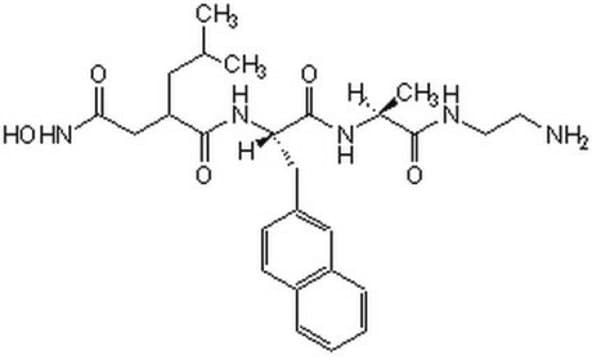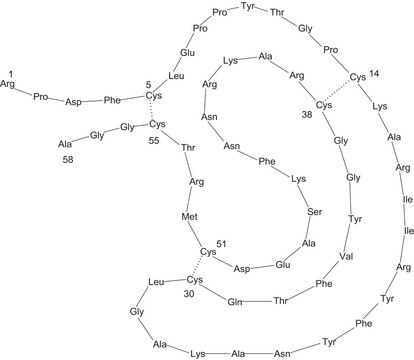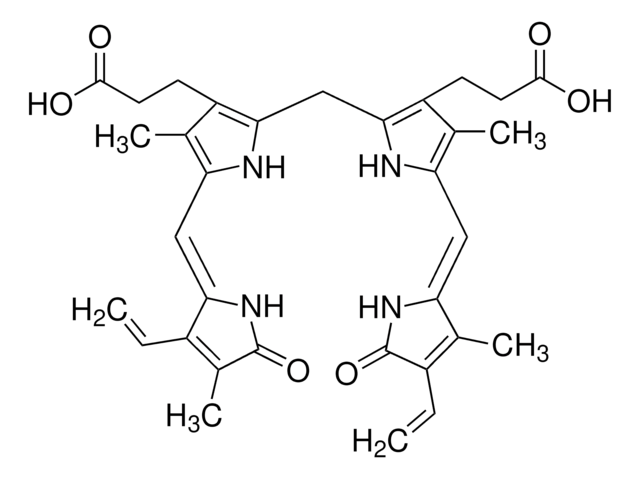580567
TCEP, Hydrochloride, Reagent Grade
Synonym(s):
TCEP, Hydrochloride, Reagent Grade, tris(2-Carboxyethyl)phosphine, HCl
About This Item
Recommended Products
grade
reagent grade
Quality Level
Assay
≥98% (GC)
form
solid
reaction suitability
reagent type: reductant
manufacturer/tradename
Calbiochem®
storage condition
OK to freeze
desiccated
color
white
solubility
water: 50 mg/mL
shipped in
ambient
storage temp.
2-8°C
InChI
1S/C9H15O6P/c10-7(11)1-4-16(5-2-8(12)13)6-3-9(14)15/h1-6H2,(H,10,11)(H,12,13)(H,14,15)/p-3
InChI key
PZBFGYYEXUXCOF-UHFFFAOYSA-K
General description
Application
- A Study on Thiol-Michael Addition to Semi-Synthetic Elastin-Hyaluronan Material for Electrospun Scaffolds.: Investigates the application of TCEP hydrochloride in the thiol-Michael addition reactions to develop semi-synthetic elastin-hyaluronan materials, which are pivotal for creating electrospun scaffolds used in biomedical engineering (Laezza et al., 2024).
- Target Recognition-Triggered Peroxidase-Mimicking Activity Depression in Homochiral Nanochannels for Identifying Cystine Enantiomers.: Highlights the use of TCEP hydrochloride in the development of a novel method for identifying cystine enantiomers through target recognition-triggered peroxidase-mimicking activity depression in nanochannels (Xu et al., 2023).
Packaging
Warning
Reconstitution
Other Notes
Han, J.C. and Han, G.Y. 1994. Anal. Biochem. 220, 5.
Burns, J.A., et al. 1991. J. Org. Chem.56, 2648.
Legal Information
Signal Word
Danger
Hazard Statements
Precautionary Statements
Hazard Classifications
Eye Dam. 1 - Skin Corr. 1B
Storage Class Code
8A - Combustible corrosive hazardous materials
WGK
WGK 1
Certificates of Analysis (COA)
Search for Certificates of Analysis (COA) by entering the products Lot/Batch Number. Lot and Batch Numbers can be found on a product’s label following the words ‘Lot’ or ‘Batch’.
Already Own This Product?
Find documentation for the products that you have recently purchased in the Document Library.
Customers Also Viewed
Our team of scientists has experience in all areas of research including Life Science, Material Science, Chemical Synthesis, Chromatography, Analytical and many others.
Contact Technical Service











